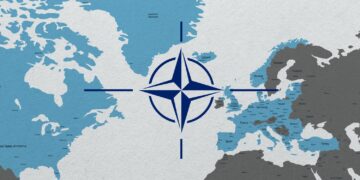Financial Stability: A Call to Action for France and Europe
Prioritizing Financial Discipline
In light of recent statements made by ECB’s (European Central Bank) Policy Maker, Klaas Knot, there’s an urgent need for European nations, particularly France, to establish more disciplined financial practices. As the global economic landscape continues to shift due to various pressures—including inflationary trends and geopolitical tensions—sound fiscal policies have never been more critical.
The Imperative of Fiscal Responsibility
Knot emphasized that Europe cannot afford complacency in financial governance. Many countries across the continent are grappling with mounting debt levels coupled with stagnant growth rates. A report from Eurostat indicates that as of 2023, public debt in the eurozone reached approximately 95% of GDP—a stark reminder of these growing challenges.
The Risks Ahead
Failure to address these fiscal imbalances can lead to severe repercussions not just locally but globally due to Europe’s interconnected economies. Knot warned that without proactive measures, we risk heading toward another financial crisis reminiscent of past downturns—highlighting Greece’s tumultuous experience during its sovereign debt crisis as a cautionary tale.
Embracing Sustainable Economic Practices
To navigate these pressing concerns successfully, European leaders must advocate for sustainable economic practices that foster growth while maintaining budgetary discipline. Implementing structural reforms within affected states is essential for reviving investor confidence and stimulating economic activity.
Insights from Current Statistics
Data shows a worrying trend where inflation rates have surged across several EU countries over the past year—averaging around 6%, compared with near-zero figures just two years prior. This spike emphasizes the necessity for robust strategies aimed at controlling spending while investing wisely in future growth sectors such as green technology.
Collaborative Efforts Towards a Unified Strategy
Ultimately, collaborative efforts among EU member states are vital in creating a coherent strategy capable of addressing systemic risks effectively. By unifying their approaches towards regulation and fiscal management while sharing best practices and resources, France and its neighbors can work towards restoring stability within their economies.
Klaat Knot’s observations serve as a crucial reminder: it’s time for European nations like France not only to recognize current vulnerabilities but also actively seek innovative solutions for long-term economic resilience amidst turbulent times.















